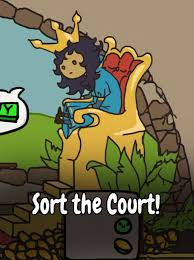Cooking can be a delightful experience, but what happens when a game turns this joy into a mission for animal rights? Enter PETA’s Cooking Mama, a unique spin on the classic cooking game that aims to engage online gamers and school students alike. In this post, we’ll uncover how PETA uses gaming to educate and inspire young minds about the importance of animal welfare. We’ll explore the impact of this unconventional approach, its relevance to players, and what it means for the future of educational games.
Peta Cooking Mama Unblocked
PETA, or People for the Ethical Treatment of Animals, is renowned for its passionate campaigns to end animal cruelty. In 2008, they launched a parody of the popular Cooking Mama game with an animal rights twist, calling it Cooking Mama: Mama Kills Animals. Unlike the original, which focuses on preparing delicious dishes, PETA’s version highlights the realities of animal agriculture. By presenting a stark contrast to traditional cooking games, PETA hopes to raise awareness and encourage players to think critically about their food choices.
The idea behind this game was simple yet profound. PETA wanted to reach a younger audience, namely online gamers and school students, who might not otherwise engage with animal rights issues. By leveraging the popularity of a well-loved game, PETA created a platform where education and entertainment converge.
Despite some initial controversy and varying opinions, PETA’s Cooking Mama has carved out a niche in the gaming world. Its unique approach—blending advocacy with interactive gameplay—continues to draw attention and provoke discussion among players and critics.
How PETA’s Game Stands Out
What sets PETA’s Cooking Mama apart from other games is its unapologetic stance on animal cruelty. Through vivid graphics and compelling narrative, it exposes the often-overlooked aspects of meat production. Players are tasked with preparing a Thanksgiving dinner, complete with a turkey. However, as the game progresses, they are confronted with the harsh realities of factory farming and slaughterhouses.
The gameplay is designed to evoke empathy and drive players to reconsider their dietary habits. By incorporating detailed information about animal rights issues, PETA provides an educational experience that extends beyond traditional classroom settings. This game is not just about cooking; it’s about sparking curiosity and encouraging meaningful change.
One of the game’s standout features is its ability to engage players through interactive elements. By allowing them to actively participate in the cooking process, PETA creates a sense of responsibility and urgency. The challenge lies not only in cooking the perfect meal but also in navigating the moral dilemmas associated with it.
Impact of Cooking Mama
For school students, PETA’s Cooking Mama offers a unique opportunity to learn about ethical issues in a relatable context. At an age where digital media plays a significant role in shaping opinions, this game serves as a powerful educational tool. It encourages critical thinking and empowers students to make informed decisions about their lifestyle choices.
Teachers can incorporate this game into their curriculum as part of discussions on ethics, animal rights, or environmental studies. By engaging students through an interactive medium, educators can foster a deeper understanding of complex subjects. The game also provides a platform for open dialogue, allowing students to express their thoughts and explore different perspectives.
For online gamers, PETA’s Cooking Mama offers an alternative to conventional gameplay. It challenges players to step out of their comfort zones and question societal norms. By presenting a different narrative, PETA encourages gamers to explore new ideas and broaden their horizons.
About Gaming and Activism
Some might argue that video games are purely a form of entertainment and have no place in activism. However, PETA’s Cooking Mama challenges this notion by demonstrating how games can be a powerful medium for social change. Through its innovative approach, the game raises awareness and sparks conversation about pressing issues.
Critics may question the effectiveness of using games as a tool for activism. After all, can a simple game truly influence behavior and inspire change? While the impact of a single game may be limited, it can serve as a catalyst for broader discussions and inspire players to seek further information.
By bridging the gap between gaming and activism, PETA’s Cooking Mama opens up new possibilities for both industries. It highlights the potential of games to educate, inform, and inspire action, encouraging developers to explore how their creations can contribute to positive change.
PETA’s Cooking Mama excels at capturing players’ attention through engaging storytelling. The game incorporates narrative elements that draw players in, making them invested in the outcome. By weaving educational content into the storyline, PETA creates a seamless experience where learning happens naturally.
This approach resonates with players who appreciate games that offer more than just entertainment. By blending gameplay with meaningful messages, PETA’s Cooking Mama ensures that players walk away with a deeper understanding of animal rights issues. It transforms passive consumption into active engagement, prompting players to reflect on their own values and beliefs.
Interactive storytelling also enhances the replay value of the game. Players are encouraged to revisit the game to explore different scenarios and outcomes, deepening their connection with the subject matter. This extended engagement reinforces the educational impact of the game and keeps the conversation going.
Graphics and Sound of Gameplay
Visual and auditory elements play a crucial role in enhancing the overall gaming experience in PETA’s Cooking Mama. The game leverages striking visuals to convey its message, using bold colors and detailed animations to capture players’ attention. By combining these elements with compelling sound effects, PETA creates an immersive environment that drives home the emotional impact of its message.
Graphics are used strategically to highlight the contrast between the cheerful cooking scenes and the disturbing realities of animal agriculture. This juxtaposition forces players to confront uncomfortable truths and challenges them to rethink their assumptions about food production.
Sound also plays a key role in setting the tone of the game. From upbeat music during the cooking process to somber notes accompanying scenes of animal suffering, the audio elements work in harmony with the visuals to create a cohesive narrative. This synergy enhances the emotional depth of the game and reinforces its overall impact.
The Gameplay
Empathy is at the heart of PETA’s Cooking Mama. By placing players in control of the cooking process, the game fosters a sense of connection and responsibility. Players are not passive observers; they are active participants who must make choices that align with their values.
The game challenges players to consider the consequences of their actions, both in the virtual world and in real life. By encouraging empathy, PETA seeks to inspire a generation of compassionate individuals who are mindful of the impact of their choices on animals and the environment.
Through this empathetic approach, PETA’s Cooking Mama transcends traditional gaming experiences. It invites players to explore their emotions, question their beliefs, and ultimately make informed decisions that align with their values.
How Schools Can Incorporate Gaming into Curriculum
PETA’s Cooking Mama offers schools a unique opportunity to incorporate gaming into their curriculum. By leveraging digital media as a teaching tool, educators can engage students in meaningful discussions about ethics, sustainability, and social responsibility.
Teachers can use the game as a starting point for broader conversations about animal rights and environmental issues. It provides a relatable context for exploring complex topics and encourages students to think critically about their values.
Gaming can also foster collaboration and communication among students. By working together to explore different scenarios and outcomes, students develop important skills that will serve them well beyond the classroom. PETA’s Cooking Mama encourages teamwork and problem-solving, helping students build confidence in their abilities.
Future of Educational Gaming
PETA’s Cooking Mama represents a shift in how we view games as educational tools. It demonstrates the potential of gaming to engage young audiences, spark meaningful conversations, and inspire positive change.
As technology continues to evolve, so too will the opportunities for educational gaming. Developers have the chance to explore new frontiers and create immersive experiences that educate, entertain, and empower players.
The success of PETA’s Cooking Mama underscores the importance of creativity and innovation in the gaming industry. By pushing boundaries and challenging conventions, developers can create games that resonate with players and leave a lasting impact.
Conclusion
PETA’s Cooking Mama is more than just a game; it’s a call to action. By leveraging the power of gaming, PETA has created a platform where education and entertainment converge. The game encourages players to think critically about their choices and inspires them to make a difference.
For online gamers and school students, PETA’s Cooking Mama offers a unique opportunity to learn about animal rights in a relatable context. It challenges players to step out of their comfort zones and explore new ideas, fostering empathy and understanding along the way.
If you’re curious to learn more about how gaming can be used as an educational tool, we invite you to explore additional resources and join the conversation. Whether you’re a gamer, a student, or an educator, there’s something for everyone in the world of educational gaming.













